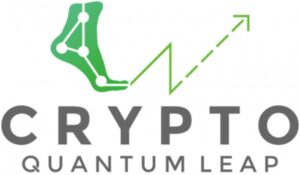The Everton Football Club owner, Farhad Moshiri, received more than £400m from Alisher Usmanov companies in the run-up to the Russian billionaire being placed under sanctions, documents suggest, raising fresh questions about the financial ties between the two men.
Records seen by the Guardian appear to show that Moshiri borrowed £145m from a company wholly owned by the Russian-Uzbek tycoon from about 2020.
The papers also set out how, between 2018 and 2022, Moshiri sold about £270m of shares in a company whose largest shareholder was Usmanov. Moshiri did not pay for those shares, public accounts imply, which accounting experts suggested could mean that the share sales were a gift.
Usmanov is one of the world’s richest people and is said to be close to Vladimir Putin. He has long had business ties with Moshiri and the pair jointly owned a stake in Arsenal Football Club. Moshiri sold his Arsenal shares back to Usmanov in 2016 in order to fund his initial investment in Everton.
The discovery of the previously unreported financial records raises fresh questions about the relationship between the men – as well as the true wealth of Moshiri, just days after the British businessman disclosed a provisional deal to sell Everton to the US investment firm 777 Partners.
The papers also appear to misalign with Moshiri’s previous statements about how he could continue to fund the Premier League club himself, as well as his promise to provide ongoing financial backing that was crucial in Everton’s auditors signing off its 2022 accounts this year.
In January, Moshiri told TalkSport: “I put my money where my mouth is, that’s the most an owner can do.”
After being presented with the information laid out in the internal documents, a spokesperson for Usmanov declined to discuss precise details of the funding but said: “Mr Moshiri and his companies are indeed indebted to Mr Usmanov and entities affiliated with him. We hope that the debt will be repaid after Mr Moshiri closes the sale of the Everton club, which is now being actively announced in the press.”
It is not clear how such a repayment could currently be made as Usmanov has been under UK government sanctions since March 2022 after Russia’s invasion of Ukraine – a move he has consistently argued was “unfair and unjustified”. UK citizens cannot transfer funds to individuals who are under sanctions without government permission.
The Russian billionaire had already been barred from entering the UK since September 2021, at which point the Football Association reportedly made it “clear to Alisher Usmanov that he would not be permitted to loan money to Everton – or any other football club”.
However, documents seen by the Guardian lay out a string of Moshiri debts to Usmanov companies – raising questions about whether Moshiri invested any of those funds into Everton.
The extent of the Russian tycoon’s previously undisclosed financial links to Moshiri raises also further questions about the wealth of the former accountant turned Premier League owner, which has been estimated at £1.6bn.
Documents suggest that Windfel Properties – a company owned by Usmanov – loaned Moshiri £70m between about 2020 and March 2022. A Moshiri-owned company also appears to have borrowed a further £75m from Windfel during that time, the papers outline.
Separately, Moshiri also appears to have received about £270m by selling shares in USM, the conglomerate created by Usmanov in which the Russian is the largest single shareholder with a 49% stake, according to internal records.
The windfall came despite publicly available documents, which were filed in Cyprus, suggesting that Moshiri had never paid for those shares.
The Briton has been listed as owning 10% of USM, but the company’s own accounts appear to set out how, in order to take up an “option” of acquiring that stake, Moshiri would need to pay $200m (£160m).
Internal documents record how the $200m “deferred payment” to acquire the shares remained unpaid by March 2022. The Guardian can also reveal that that outstanding debt was cut from an original $780m by USM, after a $490m writedown in 2016. Accounting experts said that this raised questions about whether Moshiri was effectively being gifted hundreds of millions of dollars.
after newsletter promotion
According to internal records, the Everton owner’s debt to USM was further reduced by the British businessman not taking up about $90m of USM dividends – even though he did not appear to have bought a stake in the company.
In a series of transactions in UK pounds and US dollars, Moshiri then sold some of those USM shares – seemingly back to the company – for about £270m between 2018 and 2022, according to internal documents. The final sales are dated in the financial records as taking place in February 2022. Lawyers for Moshiri said he continues to own a 5% stake in USM and that his interest in it was never an “option”.
The huge sums that appear to have been received by Moshiri from Usmanov companies add to the recurrent questions about the nature of the relationship between the Everton owner and the Russian billionaire before he was sanctioned in March 2022.
These questions have been refuelled by recent Guardian reports of how a series of football managers claimed they were interviewed for the Everton manager’s job in the presence of Usmanov; and how former manager Carlo Ancelotti held discussions with the Russian about a series of incentive payments dependent on Everton’s performance in the Premier League.
While acknowledging his involvement at the club, Usmanov has always insisted that he owns no direct or indirect stake in Everton and that Moshiri has made all the decisions at the club. He has also consistently stated that he has followed Premier League rules and has broken no laws.
Moshiri has always said he has invested his own money into the Premier League club and that he has not misrepresented his status or relationship with Usmanov.
During the timeframe the British businessman appears to have benefited from £415m of funding from Usmanov companies, he was also being publicly credited with investing £600m into Everton, according to an analysis of the club’s accounts conducted by the fan website TheEsk.org. In total Moshiri is said to have invested £750m into Everton.
However, the club has been searching for an investor since it was forced to distance itself from Usmanov in the wake of Russia’s invasion of Ukraine. Before the war, Usmanov’s companies had been a leading sponsor of Everton, contributing an estimated £114m to the club’s coffers since 2017. Last month, a proposed investment deal from MSP Sports Capital collapsed.
Earlier this year the Sunday Times Rich List estimated Moshiri is worth about £1.6bn. Aside from Everton, Moshiri has been listed as the owner of UK property valued at more than £100m, including Liverpool’s Royal Liver Building and a series of luxury homes in north London, owned via a portfolio of Isle of Man companies. At least one of the London homes was given to Moshiri by Usmanov “not for money”, according to Land Registry documents.
A lawyer for Moshiri did not address questions about the amount of money received by Moshiri from Usmanov companies or the suggestion that the debts had been used to fund Everton.
She said: “As the owner of Everton FC, Farhad Moshiri has always acted in the best interests of the club and its supporters. He is not controlled by or acting on behalf of Alisher Usmanov (or anyone else). These false claims have been disproved by independent investigations.”




